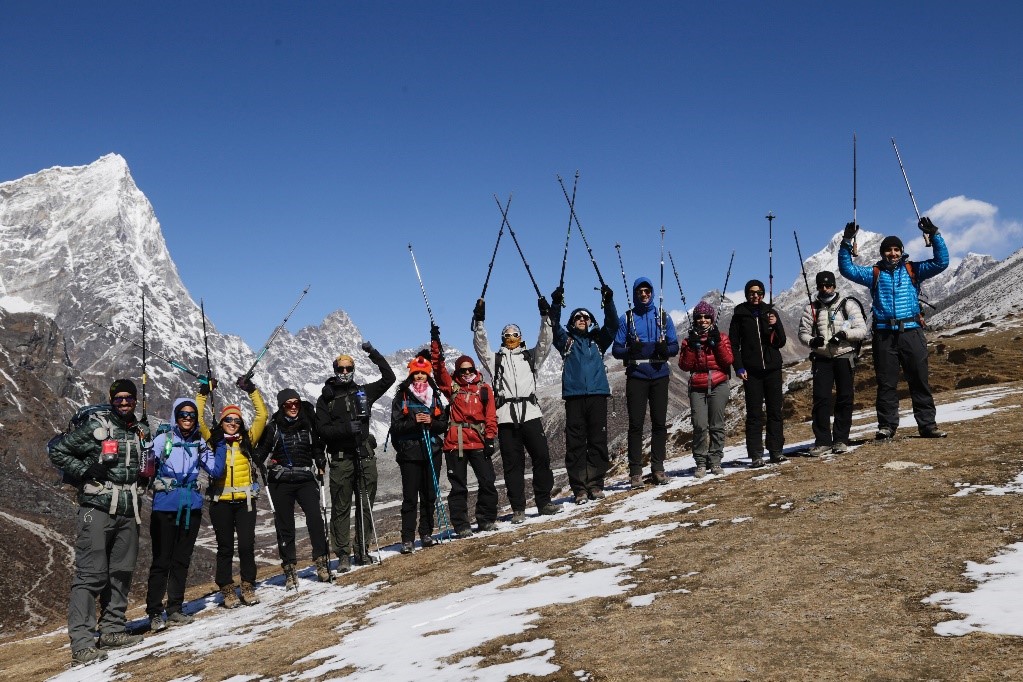What Climbing Mountains Taught Me
Noorulhuda Al Mandhari
My name is Noorulhuda Al Mandhari, I am an Engineer by profession and an adventurer by heart.
My journey towards sports and adventure began in 2018 when I decided to scale the highest free standing mountain in the world, the highest mountain in the continent of Africa, and the 4th highest of the Seven Summits: Mount Kilimanjaro (5,890m above sea level).
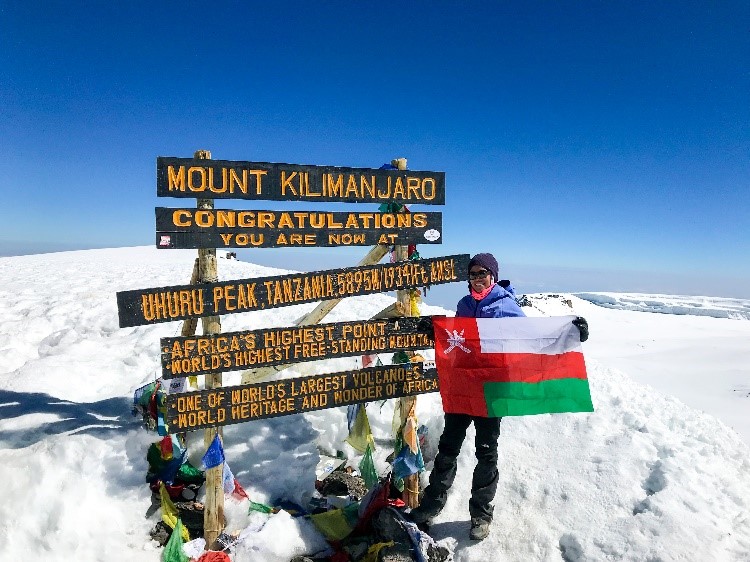
Since childhood, I spent most of my weekends in the outdoors with the family, from short hikes to camping. As I grew up it became less frequent, where studying abroad and work took over, and my career path became a priority. After few years of continuous work, a big gap formed within me, knowing deep inside that I was created to do much more than just my job. As adventure companies within the country began to arise, I signed up for a number of adventures with them, from hiking to abseiling. I wanted to challenge myself and push my limits. I knew I had so much fear in me, yet I was determined to strive to do the nerve-racking and risky activities I dreamt about. As part of facing my fears, I decided to sign up for bigger challenges, and that’s when Mount Kilimanjaro came into the picture.
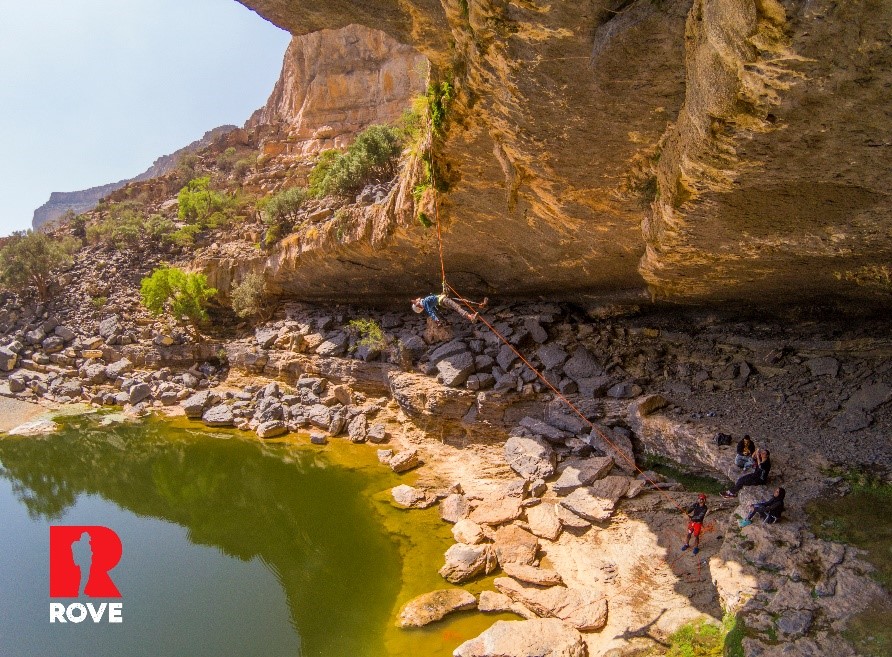
Jebel Shams, Oman, led by a local adventures company 'Rove'
Training is key towards a safe, successful and enjoyable climb, and that’s where my athletic life began. This included training with personal trainers, climbing local mountains, signing up for races such as the Spartan Race, UTMB trail running and Muscat Marathon. Further, it provides an opportunity to evaluate and build mental and physical preparation towards mountain expeditions. My training also helped me discover my passion towards certain sports such as running.
After Mount Kilimanjaro, I got the mountain bug (as they say) and decided to climb Everest Base Camp along with Island Peak in Nepal in 2019. Everest Base Camp trek is one of the most beautiful treks in the world, with an elevation of 5,500m, which takes around 12-14 days. Within the same trip, I attempted to climb one of the technical peaks in Nepal known as Island peak with an elevation of 6,189 m, as part of trying to attempt a mountain above 6000 m and see how it really feels to cross ladders. Unfortunately, after reaching Island Peak Base Camp, a snow storm hit the camp and did not allow us to attempt the summit. One of the main challenges in climbing mountains in Nepal is the unpredictable weather conditions that can jeopardize your ability to reach the summit. Nevertheless, the experience was still extremely rewarding. This trip was the longest I have experienced on a mountain, from landing on one of the most dangerous airports in the world, Lukla, where the runway is literally the edge of a mountain, to helicopter rides and snow storms.
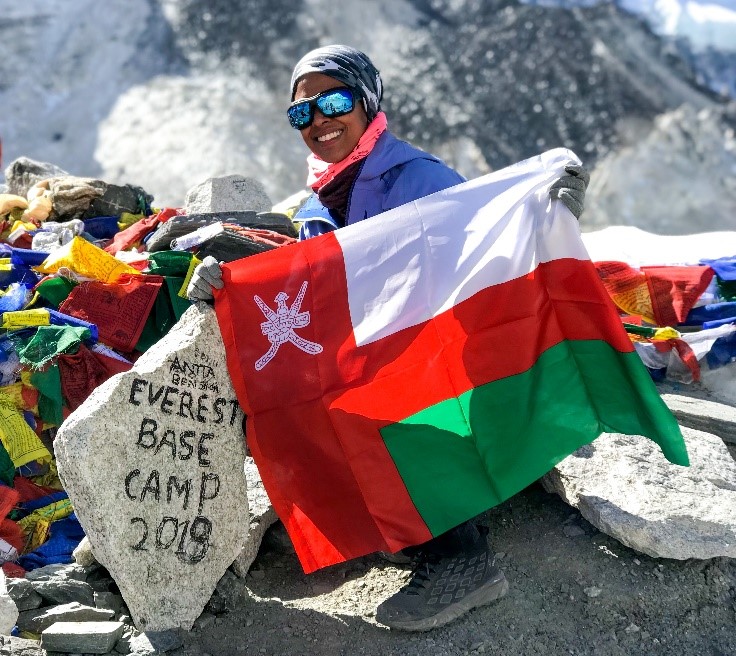
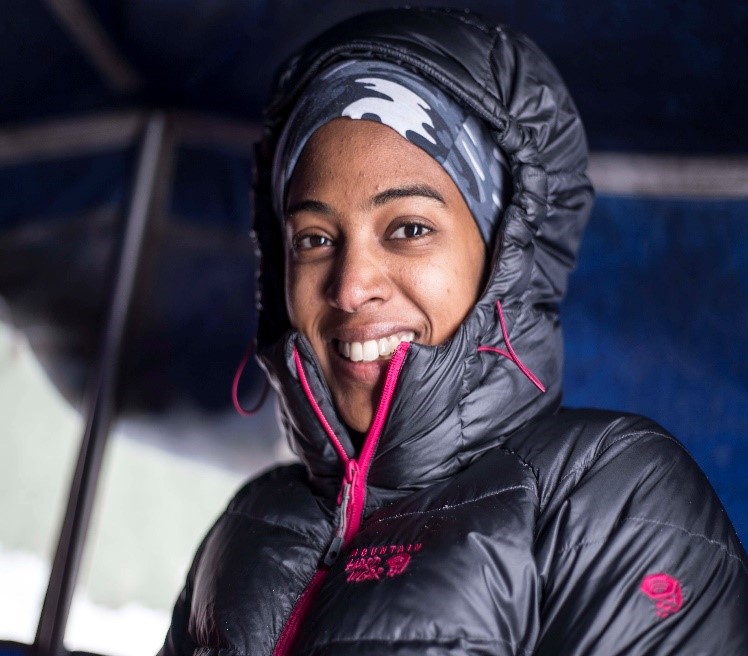
Everest Base Camp (5,500m); Island Peak Base Camp (5,087m)
One mountain did not seem like enough for me, so in that same year I climbed Mount Elbrus (5,642m) which is considered the highest mountain on the European continent, and falls as the 5th highest mountain among the Seven Summits. This trip was different compared with my previous ones, as it was a solo trip with a guide, whereas all my previous trips were climbed with a group of people from around the world. Mount Elbrus is considered a technical climb, where crampons and ice axes are required. It is a mountain filled purely with snow, ice and challenging weather conditions. It was a challenge but I made it, and so I have thus far completed two mountains out of the Seven Summits.
.jpg)
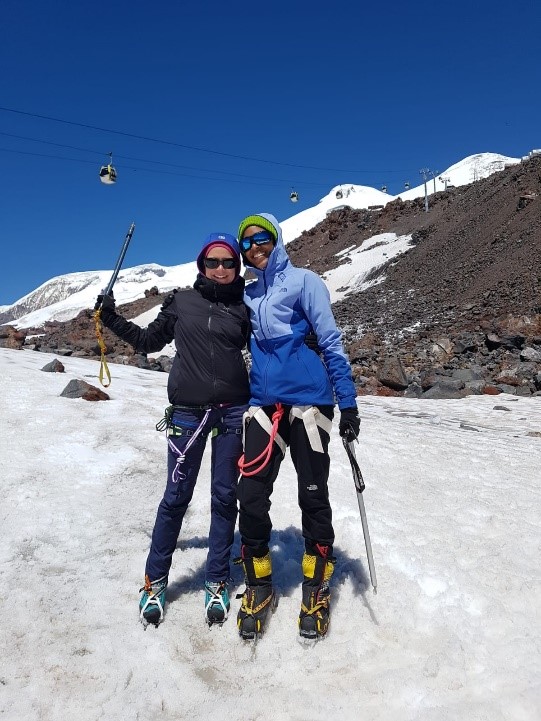
Mount Elbrus Summit (5,642 m); Training at Mount Elbrus Camp
Climbing mountains all began with the goal of self discovery and to help me land my life purpose. The lessons gained out of the mountains remain, and they resurface at different moments in my life. Mountaineering taught me to become more of a minimalist and appreciate the privileges I have in my daily life - even those as simple as having access to warm water and the ease of breathing at sea level! Further, one of the greatest lessons is to trust my own pace and ability to achieve my goals, and not compare myself to others, as eventually we all make it, even if the paths taken differ. The lessons learned during the journey towards the climb, in preparing and in setting out for the summit, have been as rewarding as reaching the summit itself. It’s about the journey and not the destination.
For me, the mountains are an escape, a place to grow, heal, connect more with myself, with nature, with god and with people from around the world. This planet is like no other and I shall continue to climb and to experience it all, over and over again, yet under different conditions and different challenges.
